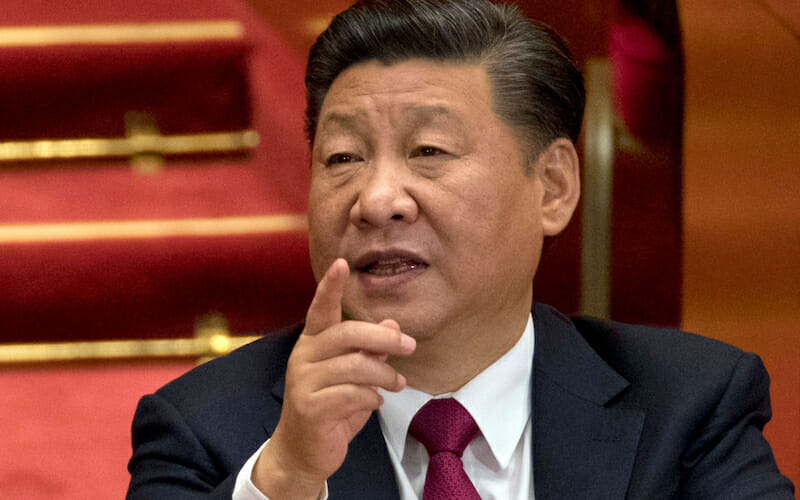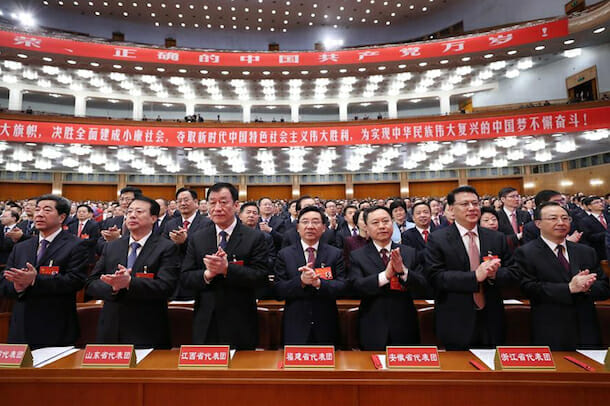
A World Away: Understanding Western Media’s Underemphasis of China’s 19th Congress
The attention of the Western world has been rightly occupied with important news stories about Donald Trump, the United States’ withdrawal from global leadership, and other topics such as Brexit. But it is impossible to appreciate the significance of any of these major events without understanding them in context with the rise of the world’s next great power.
The 19th National Congress of the Communist Party of China was the country’s most important political event in a generation. From October 18-24, this iteration of the once-per-five year event saw Xi Jinping become the country’s most powerful leader since Mao Zedong. The 19th Congress will shape the country’s future for years to come, and it will shape that of the rest of the world as well. China has now explicitly positioned itself as a great power within a multipolar world order in which it will take a leading role.
There is a strong argument to be made that this Congress represents the official start of the “New Era for China” that Xi claimed responsibility for in his opening speech. But if this was China’s coming out, much of the Western public is unaware of it.
From October 20th to 21st, I evaluated the level of emphasis given to coverage of Congress by 34 major general-interest media outlets from five Western countries. Selecting dates from this period allowed me to investigate whether coverage of the Congress was sustained throughout the “meat” of the event. The results showed that Congress articles were not given high levels of prominence. The Congress articles that did get relatively visible positions tended to be introductory material or broad analysis; day-to-day reporting had very little presence.
Of the 18 U.S. media outlets I reviewed, The Washington Post, Vox, Axios, CNN, The Atlantic, NPR, PRI, Fox News, Politico, MSNBC, Slate, and Vice News all lacked any China-centric articles on their homepage. Within the top 100 Google News results for each site, only NPR’s contained at least four articles about Congress.
The New York Times and Quartz did better. Each had articles on their homepage (although the latter uses endless scrolling), and Quartz had eight China-focused articles in its top 100 results—including six about the Congress—more than any other site in the survey. NYT’s coverage was supplemented by daily briefing articles that mentioned Xi in their headlines.
Buzzfeed News was somewhat of an outlier. It had no high-placed Congress articles, but its lead story during this period was a long piece about China’s domestic security and surveillance apparatus.
A review of a further 16 outlets in Canada, the UK, Germany, and France found that emphasis on the Congress was not any stronger in non-U.S. Western media. Canada’s public broadcaster, the CBC, had no relevant articles on its news homepage or top 100 Google News results. And while The Guardian published an editorial titled “We are obsessed with Brexit and Trump: we should be thinking about China,” it also had no articles on its homepage or top results.

UK outlets The Financial Times, The Economist, and Reuters all had homepage articles on the Congress. The latter two and the BBC join Quartz and NPR as the only outlets with at least four China-focused articles in their top 100 results. Bloomberg Politics (U.S.) was the sole site with a Congress article as its top Google News result, although Reuters had financial news from Congress’s sidelines in its top ten.
To substantiate my evaluation of the outlets above, I also looked at the October 22 Google Trends results for “China.” Assuming a neutral influence from social media and other sources, a measured rise in interest could imply that media coverage of the Congress was effective enough to substantially increase public engagement with the topic.
There was a significant increase in the number of queries related to the Congress over the seven day period leading up to Oct 22. The largest rise of any China-related query in the United States was “China Communist party congress” at +1,200% queries, while UK searches for “China Xi Jinping” rose 1,750%. Only New Zealand and Ireland saw no apparent effect from the Congress.
Despite this relative surge in queries, the number of searches for the Congress was still not sizeable enough for any Congress-related query to rank among the most popular China-related searches or topics in absolute terms. Further, Trends’ 12-month interest level graphs for China showed no increase in interest correlated to the Congress period. In fact, interest levels during the Congress were mostly equal to what they had been twelve months prior.
These results demonstrate that media coverage of the Congress was insufficient to drive public engagement. Even articles about the events’ major stories had little visibility, which left no room for more detailed reporting. Only The New York Times and Bloomberg provided any prominence to daily overviews of the event, and only Bloomberg gave these summaries of their own articles.
If Western media continues to under-emphasize China, Western populations will eventually face a major China-related event that they can neither ignore nor understand. Widespread misunderstanding of this event could risk a situation in which Western governments are incentivized to make harmful foreign policy choices in order to play to popular sentiment. An ill-informed public is poorly equipped to engage with a changing world as active citizens.
Xi Jinping has now been coronated as the most powerful Chinese leader since Mao Zedong, but he leads a state far more powerful than Mao’s ever was. The 19th congress represented both an ascendant China that is more powerful than ever, and the consolidation of that power is around a single person. That’s news that deserved a prominent focus from major media reporting, and the actions China takes going forward will be as well.

